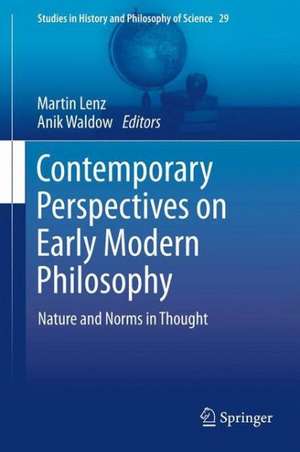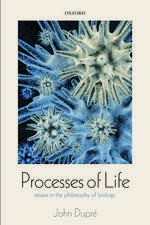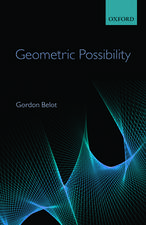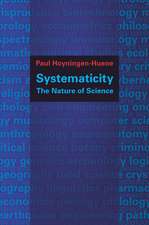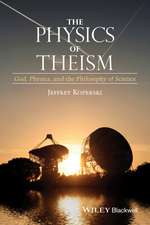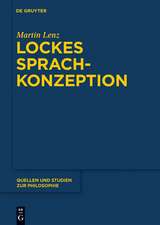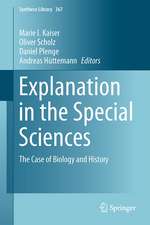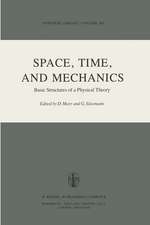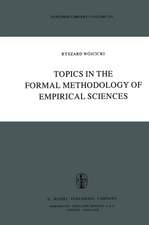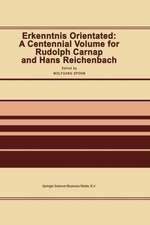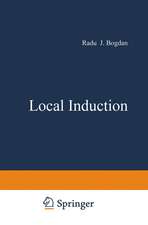Contemporary Perspectives on Early Modern Philosophy: Nature and Norms in Thought: Studies in History and Philosophy of Science, cartea 29
Editat de Martin Lenz, Anik Waldowen Limba Engleză Hardback – 3 iun 2013
| Toate formatele și edițiile | Preț | Express |
|---|---|---|
| Paperback (1) | 636.45 lei 6-8 săpt. | |
| SPRINGER NETHERLANDS – 12 iun 2015 | 636.45 lei 6-8 săpt. | |
| Hardback (1) | 642.68 lei 6-8 săpt. | |
| SPRINGER NETHERLANDS – 3 iun 2013 | 642.68 lei 6-8 săpt. |
Din seria Studies in History and Philosophy of Science
- 15%
 Preț: 650.19 lei
Preț: 650.19 lei - 15%
 Preț: 700.75 lei
Preț: 700.75 lei -
 Preț: 284.47 lei
Preț: 284.47 lei - 15%
 Preț: 702.24 lei
Preț: 702.24 lei -
 Preț: 389.88 lei
Preț: 389.88 lei - 18%
 Preț: 1222.94 lei
Preț: 1222.94 lei - 15%
 Preț: 647.08 lei
Preț: 647.08 lei - 15%
 Preț: 645.47 lei
Preț: 645.47 lei - 18%
 Preț: 956.33 lei
Preț: 956.33 lei - 18%
 Preț: 953.97 lei
Preț: 953.97 lei - 15%
 Preț: 646.11 lei
Preț: 646.11 lei - 15%
 Preț: 641.85 lei
Preț: 641.85 lei - 15%
 Preț: 644.49 lei
Preț: 644.49 lei - 18%
 Preț: 951.29 lei
Preț: 951.29 lei - 15%
 Preț: 647.40 lei
Preț: 647.40 lei - 18%
 Preț: 953.20 lei
Preț: 953.20 lei - 18%
 Preț: 946.87 lei
Preț: 946.87 lei - 18%
 Preț: 1384.56 lei
Preț: 1384.56 lei - 18%
 Preț: 1234.14 lei
Preț: 1234.14 lei - 15%
 Preț: 637.78 lei
Preț: 637.78 lei - 15%
 Preț: 633.53 lei
Preț: 633.53 lei - 18%
 Preț: 1219.77 lei
Preț: 1219.77 lei - 24%
 Preț: 586.95 lei
Preț: 586.95 lei - 18%
 Preț: 967.56 lei
Preț: 967.56 lei - 15%
 Preț: 641.38 lei
Preț: 641.38 lei - 15%
 Preț: 642.03 lei
Preț: 642.03 lei - 15%
 Preț: 641.85 lei
Preț: 641.85 lei
Preț: 642.68 lei
Preț vechi: 756.09 lei
-15% Nou
Puncte Express: 964
Preț estimativ în valută:
122.99€ • 127.93$ • 101.54£
122.99€ • 127.93$ • 101.54£
Carte tipărită la comandă
Livrare economică 14-28 aprilie
Preluare comenzi: 021 569.72.76
Specificații
ISBN-13: 9789400762404
ISBN-10: 9400762402
Pagini: 216
Ilustrații: VIII, 207 p.
Dimensiuni: 155 x 235 x 17 mm
Greutate: 0.48 kg
Ediția:2013
Editura: SPRINGER NETHERLANDS
Colecția Springer
Seria Studies in History and Philosophy of Science
Locul publicării:Dordrecht, Netherlands
ISBN-10: 9400762402
Pagini: 216
Ilustrații: VIII, 207 p.
Dimensiuni: 155 x 235 x 17 mm
Greutate: 0.48 kg
Ediția:2013
Editura: SPRINGER NETHERLANDS
Colecția Springer
Seria Studies in History and Philosophy of Science
Locul publicării:Dordrecht, Netherlands
Public țintă
ResearchCuprins
Preface.- List of Contributors.-
Nature and Norms in Thought
Martin Lenz (University of Groningen) and Anik Waldow( University of Sydney) .-
Part I Nature’s Influence on the Mind.-
Intentionality Bifurcated: A Lesson from Early Modern Philosophy?
Lionel Shapiro.-
Ideas as Thick Beliefs: Spinoza on the Normativity of Ideas
Martin Lenz.-
Three Problems in Locke’s Ontology of Substance and Mode
Antonia LoLordo.-
Kant on Imagination and the Natural Sources of the Conceptual
Johannes Haag.-
Naturalized Epistemology and the Genealogy of Knwoledge
Martin Kusch.-
Part II Shaping the Norms of our Intellectual and Practical Engagement with the World.-
Sensibility and Metaphysics: Diderot, Hume, Baumgarten, and Herder
Stephen Gaukroger. -
Back to the Facts – Herder on the Normative Role of Sensibility and Imagination
Anik Waldow.-
Extending Nature: Rousseau on the Cultivation of Moral Sensibility
Annette Pierdziwol.-
The Piacular, or On Seeing Oneself as a Moral Cause in Adam Smith
Eric Schliesser. -
Explaining and Describing: Panpsychism and Deep Ecology
Michael Hampe.-
Index.
Eric Schliesser. -
Explaining and Describing: Panpsychism and Deep Ecology
Michael Hampe.-
Index.
Nature and Norms in Thought
Martin Lenz (University of Groningen) and Anik Waldow( University of Sydney) .-
Part I Nature’s Influence on the Mind.-
Intentionality Bifurcated: A Lesson from Early Modern Philosophy?
Lionel Shapiro.-
Ideas as Thick Beliefs: Spinoza on the Normativity of Ideas
Martin Lenz.-
Three Problems in Locke’s Ontology of Substance and Mode
Antonia LoLordo.-
Kant on Imagination and the Natural Sources of the Conceptual
Johannes Haag.-
Naturalized Epistemology and the Genealogy of Knwoledge
Martin Kusch.-
Part II Shaping the Norms of our Intellectual and Practical Engagement with the World.-
Sensibility and Metaphysics: Diderot, Hume, Baumgarten, and Herder
Stephen Gaukroger. -
Back to the Facts – Herder on the Normative Role of Sensibility and Imagination
Anik Waldow.-
Extending Nature: Rousseau on the Cultivation of Moral Sensibility
Annette Pierdziwol.-
The Piacular, or On Seeing Oneself as a Moral Cause in Adam Smith
Eric Schliesser. -
Explaining and Describing: Panpsychism and Deep Ecology
Michael Hampe.-
Index.
Eric Schliesser. -
Explaining and Describing: Panpsychism and Deep Ecology
Michael Hampe.-
Index.
Textul de pe ultima copertă
Normativity has long been conceived as more properly pertaining to the domain of thought than to the domain of nature. This conception goes back to Kant and still figures prominently in contemporary epistemology, philosophy of mind and ethics. By offering a collection of new essays by leading scholars in early modern philosophy and specialists in contemporary philosophy, this volume goes beyond the point where nature and normativity came apart, and challenges the well-established opposition between these all too neatly separated realms. It examines how the mind’s embeddedness in nature can be conceived as a starting point for uncovering the links between naturally and conventionally determined standards governing an agent’s epistemic and moral engagement with the world. The original essays are grouped in two parts. The first part focuses on specific aspects of theories of perception, thought formation and judgment. It gestures towards an account of normativity that regards linguistic conventions and natural constraints as jointly setting the scene for the mind’s ability to conceptualise its experiences. The second part of the book asks what the norms of desirable epistemic and moral practices are. Key to this approach is an examination of human beings as parts of nature, who act as natural causes and are determined by their sensibilities and sentiments. Each part concludes with a chapter that integrates features of the historical debate into the contemporary context.
Caracteristici
Offers a critical perspective on one of the most debated issues in contemporary philosophy Reveals the importance of early modern philosophy and brings together leading scholars in the field Renders 17th and 18th theories of mind accessible to non-experts in the history of philosophy by focusing on one specific philosophical problem ?
